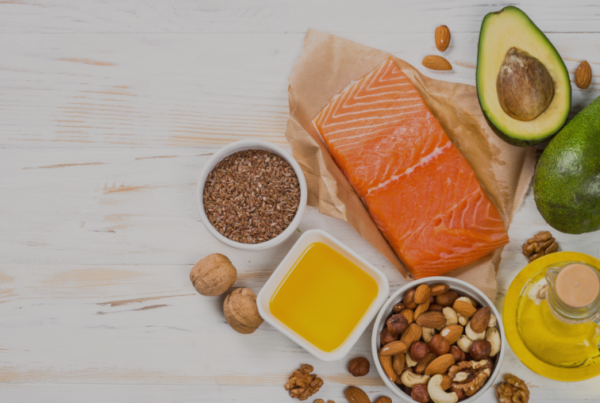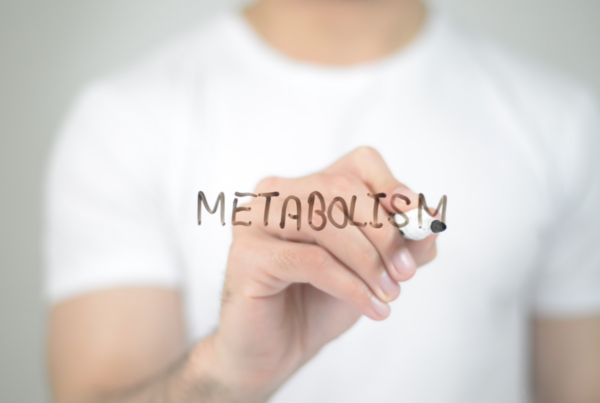Collagen is the most common type of protein found in the human body. Recently, it has become a popular ingredient in skincare products and lotions. But what is collagen, and how does it work?
In this article, we will explain what role collagen plays in the body and what collagen supplements are available to support the body’s natural processes.
What Is Collagen?
Collagen is a common protein found throughout the human body. You can find collagen in your skin, cartilage, blood vessels, bones, teeth, and tendons just to name a few.
According to US News, “collagen makes up 70% to 80% of your skin.” It also helps keep your bones strong and provides flexibility to your body’s tendons and ligaments.
So, why does collagen matter? The body naturally produces collagen, but collagen production begins to slow starting in your 20s. A US News interview revealed that this is as much as a 1% drop of the body’s collagen production per year.
This drop in collagen production can result in more wrinkles, fine lines, and fragile joints.
The body’s collagen production can be supported in numerous ways, however. Let’s take a look at how collagen production works.
How Is Collagen Produced In The Body?
Collagen is naturally produced in the body from vitamins, minerals, and amino acids. This includes vitamin c, proline, glycine, zinc, and copper.
Various foods are rich in these vitamins, minerals, and amino acids, which can help promote collagen production within the body.
Proline is commonly found in foods such as egg whites, dairy products, asparagus, mushrooms, and cabbage. Glycine, meanwhile, can be found in protein-rich foods. Pork skin, chicken skin, and gelatin are good sources of glycine.
Other rich sources of amino acids are bone broth, turkey, salmon, shellfish, soybeans, and lentils.
Vitamin C sources include oranges, bell peppers, brussel sprouts, kiwis, and sweet potatoes.
For minerals, beef, lamb, pork, and shellfish are good sources of zinc. You can also eat more chickpeas, lentils, beans, cheese, and nuts and seeds. Copper, meanwhile, is commonly found in organ meats, cashews, sesame seeds, lentils, and cocoa powder.
Eating these foods can assist your body in the collagen production process. Dietary supplements are also available to increase your intake of collagen, which can support bone density and tissue integrity.
Systemic Formulas has developed two unique dietary supplements to promote collagen intake. Let’s take a look at the products available to your patients.
Two Breakthrough Collagen Supplements
Systemic Formulas has developed two unique formulas to promote collagen production. Each product goes beyond traditional muscle, joint, and soft tissue supplementation.
Dr. Shayne Morris developed these collagen formulas based on extensive research. Systemic uses only premier collagen sourced from European grass-fed animals and high quality manufacturing.
So, what is the difference between the two collagen products? Let’s examine them below.
How Collagen MB Supports Muscle Growth
Collagen MB is not your typical muscle supplement. Whereas most supplements provide protein sourced from soy, milk, and eggs, we’ve revolutionized the process. We employ muscle and connective tissue collagen and a variety of amino acids to promote muscle growth.
Collagen promotes lean muscle mass, strength, and flexibility while providing substrates for muscle cell energy activities including mitochondrial biogenesis. This allows for more chemical energy to vitalize cellular health activities.
This also supports the positive aspect of fat-synthesis where the body burns fat for energy.
Collagen MB, coupled with added amino acids and resistance training, supports lean muscle mass, strength, and flexibility while supporting joints and cell energy.
We have added numerous amino acids to our product to assist with strength and resistance training. This includes creatine, beta alanine, and beta-hydroxy beta-methylbutyric acid.
Creatine is a naturally nitrogenous organic acid located in the body’s muscles and brain. While the body’s liver, pancreas, and kidneys make around a gram per day, most of the body’s creatine is created through consuming seafood and red meats. This creatine is then stored in muscles for energy use. Creatine can also act as a pH buffer in tissues.
Beta-alanine is an amino acid that supports muscle rebuilding and strengthening processes. When consumed from a dietary supplement, the beta-alanine enters skeletal muscle via the bloodstream. It binds with L-histidine to form what’s called the dipeptide carnosine. This can raise muscle carnosine concentrations and act as defense against the buildup of hydrogen ions during exercise, which can cause muscle fatigue.
Collagen MB also contains beta-hydroxy beta-methylbutyric acid, or HMB. This is an active metabolite of the amino acid leucine, which assists the body in gently supporting muscle building and preventing break down.
Collage MB is a non-GMO, dairy-free, no sugar added, and egg-free dietary supplement for your workout routine.
How Collagen ECM Supports Soft Tissue
Collagen supplements are not just for those looking to strengthen their muscles. Systemic Formulas developed Collagen ECM, or Peptidoglycan Extra Cellular Matrix, to supplement the body’s metabolic processes and help offset the body’s natural decline in collagen production due to aging.
Collagen ECM provides the body with amino acids to maintain the overall integrity of skin elasticity, joint and muscle support, and skin, hair, and nails.
This product contains Fortigel and Verisol hydrolyzed beef collagen to support the body’s normal growth of new joint cartilage and the overall health of the skin’s dermis.
Egg shell membranes are rich in glucosamine sulfate, chondroitin sulfate, hyaluronic acid, glycosaminoglycans, and amino acids to promote joint health and connective tissues through the body.
Collagen ECM also includes hyaluronic acid to support the body’s innate collagen synthesis processes and youthful cell maintenance.
Conclusion
Collagen is an essential protein found throughout the body. As you age, your collagen production decreases, resulting in weaker joints and wrinkled skin. With the help of Vitamin C, amino acids, and minerals like zinc and copper, collagen production can be supported by dietary supplements and a healthy diet.
Systemic Formulas two breakthrough collage supplements, Collagen MB and Collagen ECM, support the body’s joint, muscle, and skin processes. Collagen MB supports muscle building in conjunction with a strength or resistance training routine, while Collagen ECM supports the body’s innate collagen synthesis processes and promotes youthful cell maintenance.
To learn more about our collagen supplements, visit our products page.







